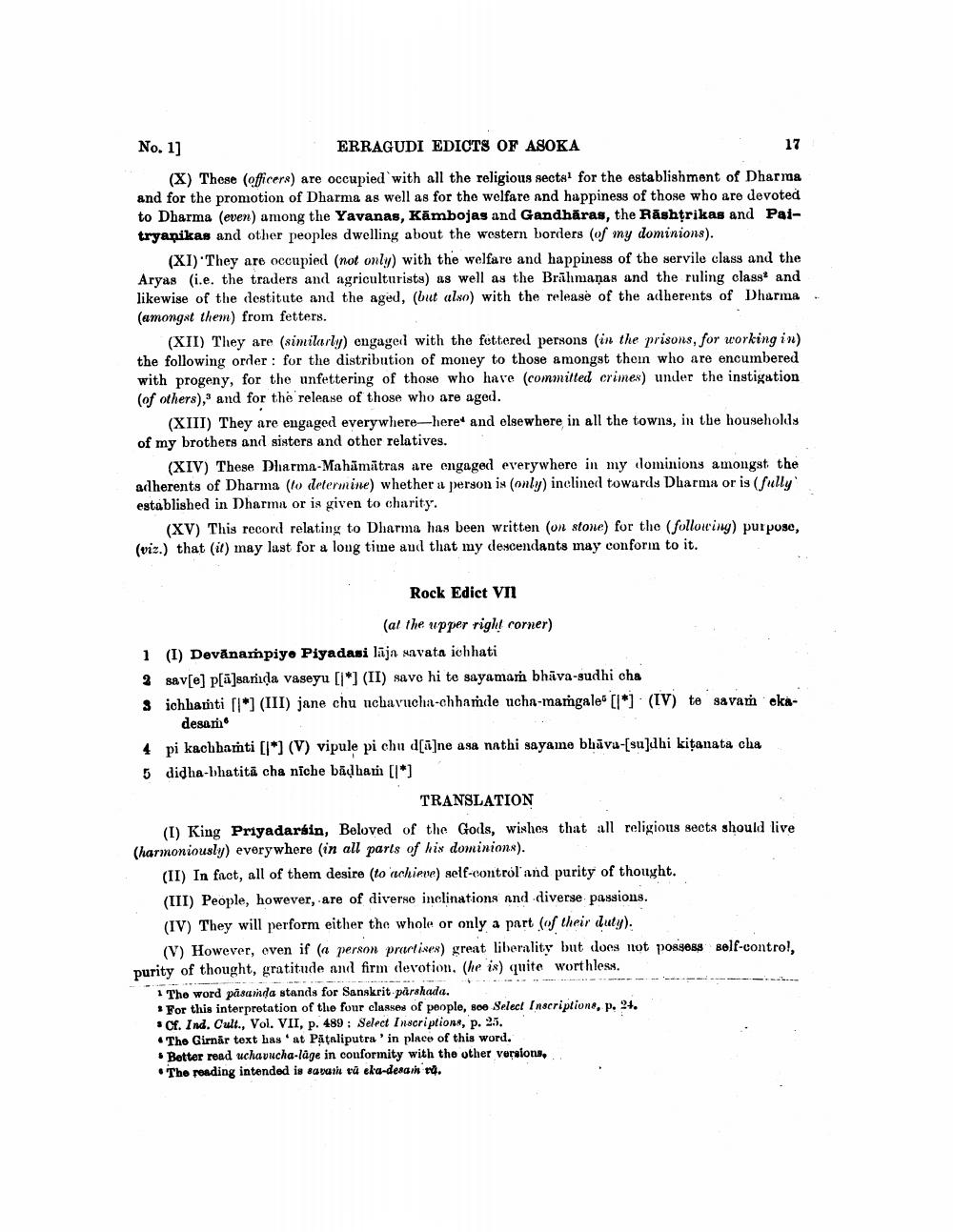________________
No. 1]
ERRAGUDI EDICTS OF ASOKA
(X) These (officers) are occupied with all the religious sects1 for the establishment of Dharma and for the promotion of Dharma as well as for the welfare and happiness of those who are devoted to Dharma (even) among the Yavanas, Kambojas and Gandharas, the Rashtrikas and Paitryanikas and other peoples dwelling about the western borders (of my dominions).
(XI) They are occupied (not only) with the welfare and happiness of the servile class and the Aryas (i.e. the traders and agriculturists) as well as the Brahmanas and the ruling class and likewise of the destitute and the aged, (but also) with the release of the adherents of Dharma (amongst them) from fetters.
(XII) They are (similarly) engaged with the fettered persons (in the prisons, for working in) the following order: for the distribution of money to those amongst them who are encumbered with progeny, for the unfettering of those who have (committed crimes) under the instigation (of others), and for the release of those who are aged.
(XIII) They are engaged everywhere-here and elsewhere in all the towns, in the households of my brothers and sisters and other relatives.
(XIV) These Dharma-Mahāmātras are engaged everywhere in my dominions amongst the adherents of Dharma (to determine) whether a person is (only) inclined towards Dharma or is (fully established in Dharma or is given to charity.
170
(XV) This record relating to Dharma has been written (on stone) for the (following) purpose, (viz.) that (it) may last for a long time and that my descendants may conform to it.
Rock Edict VII
(at the upper right corner)
1 (I) Devanaṁpiye Piyadasi laja savata ichhati
2 sav[e] p[a]sarida vaseyu [*] (II) save hi te sayamam bhava-sudhi cha
sichhamti [*] (III) jane chu uchavucha-chhamde ucha-mamgale [*] (IV) te savam eka
desam
4 pi kachhamti [*] (V) vipule pi chu d[a]ne asa nathi sayame bhava-[su]dhi kiṭanata cha
5 didha-bhatita cha niche baḍham [[*]
TRANSLATION
(I) King Priyadarsin, Beloved of the Gods, wishes that all religious sects should live (harmoniously) everywhere (in all parts of his dominions).
(II) In fact, all of them desire (to achieve) self-control and purity of thought. (III) People, however, are of diverse inclinations and diverse passions.
(IV) They will perform either the whole or only a part (of their duty).
(V) However, even if (a person practises) great liberality but does not possess self-control, purity of thought, gratitude and firm devotion. (he is) quite worthless.
1 The word pasamda stands for Sanskrit pärshada.
For this interpretation of the four classes of people, see Select Inscriptions, p. 24.
Cf. Ind. Cult., Vol. VII, p. 489: Select Inscriptions, p. 25.
The Girnär text has at Pataliputra' in place of this word.
Better read uchavucha-läge in conformity with the other versions,
The reading intended is savash va eka-desam vā.




